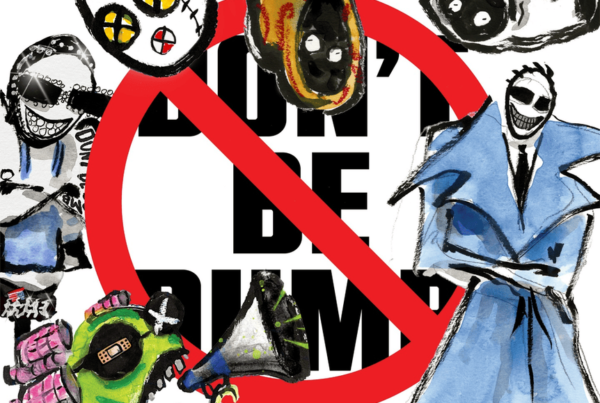Céu de Vênus show us that post-rock can be mathy and proggy at the same time without being overbearing. This is a deep breath of fresh air, one that fans all around will surely enjoy.
Release Date: May 31st, 2019 | Sinewave | Facebook | YouTube | Buy/Stream
Hailing from Curitiba, Brazil, Céu de Vênus (Venus Sky) are an instrumental post/math rock band with a special grace. They are comprised of, Luciano Komirchuk and Nicolas Fish who handle the guitar work, Matheus Valente on bass, and Rafael Walter behind the drum kit. It is unclear for how long they have been active but their only other release is their debut EP, Introspectro from 2017. Now they bring forth their debut full-length album Por Todo o Inverno e a Primavera which translates as “All Winter and Spring”.
Por Todo o Inverno e a Primavera manages to strike an amazing balance between a lot of different elements. All the way from how songs were written to how they ultimately sound, we see a great deal of musical maturity unfolding across the album; a rare sight to behold. “Quando os Pés Não Tocam o Chão” which translates to “When the Feet Do Not Touch the Ground” opens up the album with a smooth development of spacey sounding textures spiced with mathy accents that accompany us throughout the album. There is a very sweet flow woven in the fabric of the opener which carries us gracefully throughout the whole album. As it progressively unfolds, the ending rushes upwards into an epic flourish leading us forward in our aural journey. The tone that follows maintains the tasteful leads on the guitar along with a mellow dynamic that keeps the listener engaged yet laid back. “Liminar” which translates as “Injunction” doesn’t stray much from the established musical direction, insisting more on an ethereal mood. Halfway delving into a cosmic looseness it disarms the listener only to lunge him head first into the aggressive ending that closes thunderously with growls.
“Setedoum” which means “It was me”, soothes the listener with a mellow mood development, reaching into a melancholic feeling. This is our only actual breather so to say before the journey continues. Violins slowly pick up from hereon leading to a very well articulated rendition of the melange we’re already familiar with. Merely just to lull us into a fake sense of security before breaking down and then meticulously oozing out. “Memes” shows us a more playful, upbeat side of this trip while relying more on intricate tinges to energize the listener for the impending coda. “Luzes de Uma Cidade Distante” which goes as “Lights of A Distant City”, is possibly the most emotionally charged segment of the album acting as a heartfelt bridge that crosses our focus gently into the ending. “Colapso” which is “Collapse” starts ominously and quite characteristically with a sample, is the longest of all the tracks. It crosses a lot of the established soundscapes while exploring new textures in a very progressive fashion. It leaves no stone unturned and aptly closes this vibrant record.
The musical narrative is appropriately voiced by all the instruments. This goes not only for timbre but also for how everything was produced and tied together. The flow of the album resembles the flow of production, a smooth, nigh-seamless affair that glazes the listener’s ears with great delight. Variety was key in maintaining an engaging flow and it managed not to sacrifice focus in any way, which is a splendid achievement. From post to math to prog the album dances with all these influences masterfully, understanding how to emotionally detail textures, spice them up and lead from one to another.
Céu de Vênus show not only a refined affinity for musicianship, both in terms of execution and composition but also unity. This unshakable sense of organic cohesiveness that embellishes the album transpires as so much more than simply ingenious artistry. It shows that there is certainly a unique connection between all those involved in the creative process. This is the kind of thing I personally live to see happening. I hope others may enjoy this as such.






